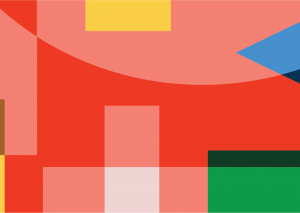OGP Research Agenda 2020-2022 – For Public Comment

The 2020-2022 OGP Research Agenda will be available for public comment between October 21 and November 11.
Roughly every two years, the OGP Support Unit co-creates the “OGP Research Agenda” with the OGP community. It captures the critical questions around open government and signals areas of interest across the organization. In the past, OGP Research Agendas have allowed for greater coordination between the OGP Support UnitThe OGP Support Unit is a small, permanent group of staff that work closely with the Steering Committee and the Independent Reporting Mechanism to advance the goals of the Open Government Partnership.... and Independent Reporting Mechanism (IRM)The Independent Reporting Mechanism (IRM) is OGP’s accountability arm and the main means of tracking progress in participating countries. The IRM provides independent, evidence-based, and objective ..., partner organizations, and independent researchers including think tanks and academics. Past research agendas have spurred considerable research through (1) research executed by the OGP Support Unit and IRM, (2) research sponsored or co-funded by OGP or the OGP Support Unit, and (3) research carried out independently.
Prior research agendas largely focused on the impacts of OGP and the broad impacts of OGP values of access to information, civic participation, and public accountabilityAccording to OGP’s Articles of Governance, public accountability occurs when ”rules, regulations, and mechanisms in place call upon government actors to justify their actions, act upon criticisms ... More. For the third edition of the OGP research agenda, we propose taking a new approach, which focuses more on how these values play out within specific policy contexts. As OGP matures, the research agenda can be broken into two parts: (1) a set of cross-cutting questions in specific policy areas and (2) questions about the roles of actors included in open government processes.
Access the 2020-2022 OGP Research Agenda here.
Please send your comments to [email protected] by November 11.
Comments (3)
Professor David Rae Reply
Going beyond the stated areas below:
‘Anti-corruption (beneficial ownership, open contracting, money in politics, extractives)
Misinformation/ disinformation, data protection and misuse of platforms such as internet shutdowns/ surveillance.’
There is a pressing need to explore the role of foreign governments and their related agents and organisations in influencing and manipulating democratic elections and processes in ways which may also be corrupt.
For example, there is growing evidence of the role of the Russian government and agents in funding and manipulating democratic processes in the United Kingdom, both through the 2016 EU Referendum and in subsequent General Elections, including the current one. Yet official reports on this are being suppressed by the UK government.
Ruth Cruz Reply
I would like to comment on highlighting public-private partnerships with regards to promoting the use of open data. There are big differences in how these are promoted between companies who understand open government data’s potential to create products and services that not only creates new jobs but also develop new conveniences for the public and countries who focus more on the top-down approach on promoting open government. Also, I would like to see additional measures on training people within government into the understanding of open governance and open government data while protecting data privacy.

Ziya Guliyev Reply
I would like to make following comment:
– Anti-corruption (beneficial ownership, open contracting, money in politics, extractives): Anti-corruption in tax and customs administration should be taken into consideration.
– Strengthening democratic processes and institutions (inclusion, civic space, access to justice, p
participation): Special attention can be paid to the issue of Justice sector reforms, independence of the judiciary, Bar Association and importance of legal representation without Bar membership. Besides, election rights and free and fair elections are an essential part of the democratic process.
– Citizen-centered policy-making (fiscal policies and open policy-making): Citizen participation in policy-making and law-making processes should have an important role in OGP Research Agenda, as well as enabling environment for CSOs also should make this possible in most countries, especially in Azerbaijan.